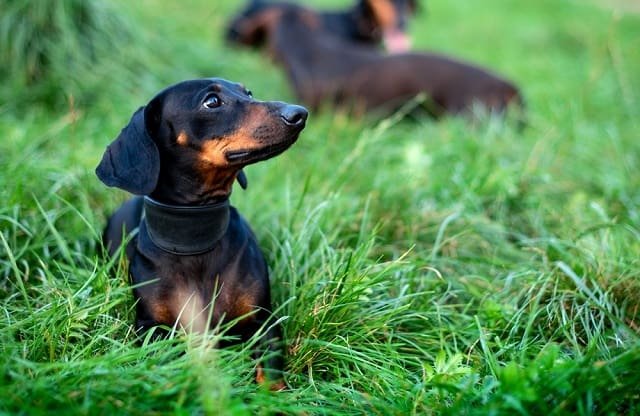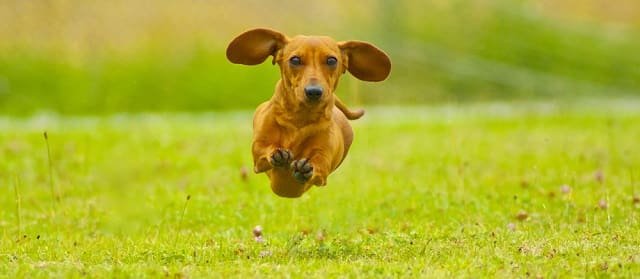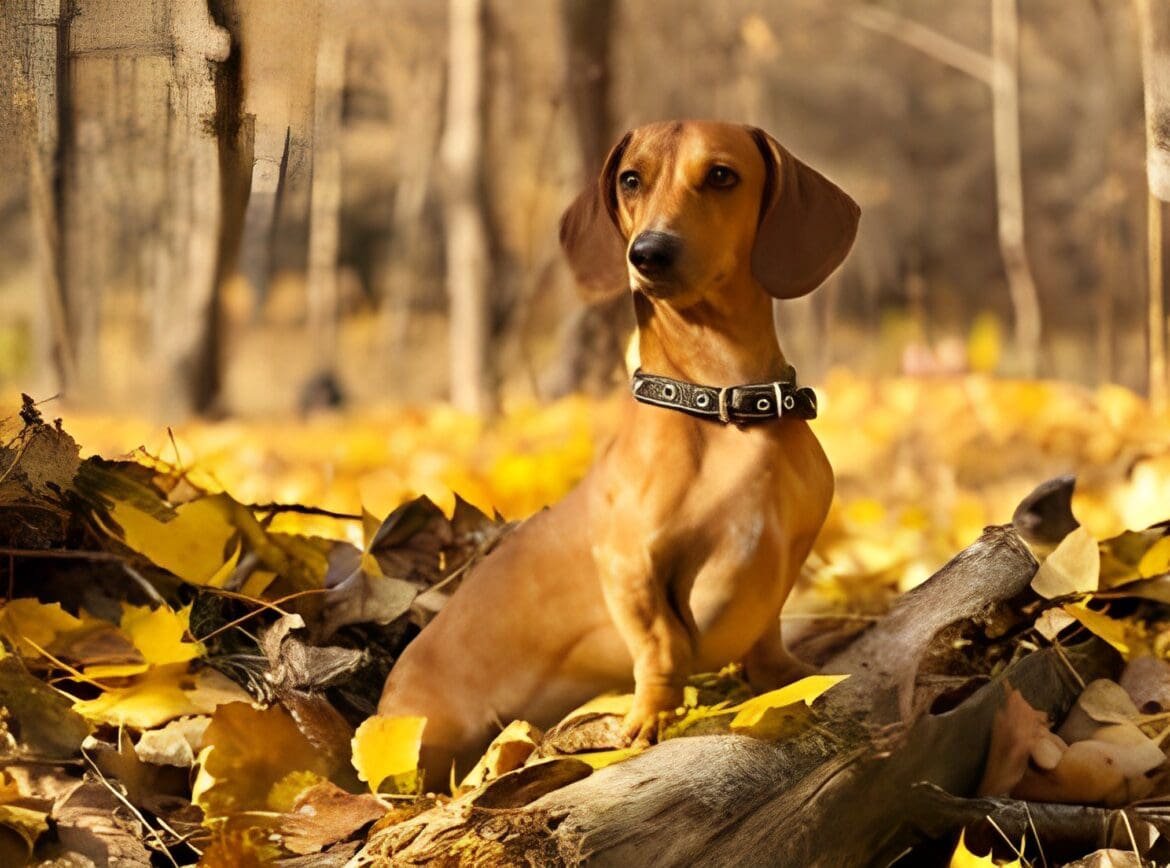Table of Contents
The question is: are dachshunds hunting dogs? Regarding the debate on whether dachshunds are truly hunting dogs, opinions are divided. With their distinctive elongated bodies and short legs, these lovable canines carry a rich history of being skilled hunters. Their name translates to “badger dog” in German, indicating their original purpose as fearless hunters. However, as dachshunds became popular companions, some argue that their hunting instincts have diminished.
Exploring the lineage and characteristics of dachshunds can provide valuable insights into their inherent hunting capabilities. Whether it’s their tenacious nature or their ability to dig into tunnels, dachshunds possess qualities that have historically made them adept at hunting small game.
Exploring Are Dachshunds Hunting Dogs
Dachshunds, known for their distinctive appearance, are often associated with their hunting heritage. Their elongated bodies and short legs were specifically bred for pursuing small game such as badgers and rabbits. These characteristics allowed them to enter burrows and tunnels to track and flush out their prey. Dachshunds were prized for their fearlessness, determination, and ability to work independently, making them valuable assets to hunters.
Despite their diminutive size, dachshunds are known for their remarkable strength and stamina. Their deep chest and strong forelimbs enable them to navigate through dense underbrush and challenging terrains. Their keen sense of smell and sharp hunting instincts contribute to their effectiveness as hunters. These inherent traits have been honed over centuries, solidifying the dachshund’s reputation as a formidable hunting breed.
The history of dachshunds as hunting dogs dates back to the 15th century in Germany. They were selectively bred to excel in hunting, focusing on developing traits enabling them to track, chase, and capture small game. Their name, “dachshund,” specifically refers to their original purpose as badger hunters. This strong connection to hunting underscores the breed’s natural inclination and aptitude for the pursuit of prey.

Characteristics of Dachshunds That Make Them Good Hunters.
Dachshunds exhibit physical and behavioral characteristics that contribute to their effectiveness as hunters. Their elongated body, short legs, and powerful chests give them the agility and strength to navigate tight spaces and challenging terrains. These physical attributes allow dachshunds to excel in pursuits that require them to enter burrows and tunnels to flush out the game.
In addition to their physical traits, dachshunds possess a sharp sense of smell and remarkable persistence. Their tenacious nature and unwavering determination make them well-suited for the pursuit and capture of small game. When on the trail of prey, dachshunds exhibit a single-minded focus, often displaying a high level of intensity and energy. These traits, combined with their adaptability and agility, make them formidable hunters in various terrains and conditions.
Arguments For Dachshunds as Hunting Dogs
Proponents of dachshunds as hunting dogs argue that the breed’s history and genetic makeup equip them for hunting. Their centuries-old lineage as skilled hunters has shaped their instincts and abilities, making them well-suited for tracking and capturing small game. Dachshund enthusiasts often emphasize the breed’s resilience, fearlessness, and unwavering determination, which are essential for successful hunting endeavors.
Advocates for dachshunds as hunting dogs indicate the breed’s continued participation in hunting activities. Despite their popularity as companion animals, many dachshunds are still actively involved in hunting trials and field tests. These events provide a platform for dachshunds to showcase their natural hunting abilities and instincts, serving as a testament to their continued relevance as hunting dogs in modern times.
Arguments Against Dachshunds as Hunting Dogs
Critics of dachshunds as hunting dogs argue that the breed’s transition from hunting to companion animals has led to a decline in their hunting instincts and capabilities. They contend that the selective breeding for specific physical traits, such as the elongated body and short legs, has resulted in a shift away from the breed’s original purpose as hunters. As dachshunds became popular pets, the emphasis on hunting traits may have diminished.
Furthermore, opponents of dachshunds as hunting dogs highlight the challenges associated with their physical limitations. The breed’s long back and short legs, while advantageous for entering burrows, can also make them susceptible to back problems and injuries. Critics raise concerns about the potential risks dachshunds face when hunting, particularly in rugged terrain or dense underbrush.

Famous Dachshunds in Hunting History
Throughout history, dachshunds have gained recognition for their hunting prowess, with several notable individuals and events showcasing their abilities. One famous dachshund, Waldi, made history as the first official Olympic mascot during the 1972 Munich Olympics. Waldi, with his vibrant colors and spirited demeanor, represented the attributes of agility and perseverance, qualities that are integral to hunting.
In addition to individual dachshunds, hunting events and competitions have provided platforms for the breed to demonstrate its hunting skills. Field trials, where dachshunds are evaluated on their ability to track, trail, and retrieve game, have highlighted the breed’s natural hunting instincts. Dachshunds have consistently shown prowess in these events, solidifying their reputation as skilled hunters.
These instances of recognition and success in hunting activities serve as a testament to the enduring legacy of dachshunds as hunting dogs. Their historical achievements and ongoing participation in hunting trials underscore their continued relevance in hunting.
Training Dachshunds For Hunting
While dachshunds possess innate hunting instincts, proper training is essential to harness and refine their natural abilities. Training programs tailored to dachshunds focus on developing skills such as tracking, scent detection, and obedience. Through structured training, dachshunds can further hone their hunting aptitude and learn to respond to commands and cues during hunting expeditions effectively.
Critical components of hunting training for dachshunds include exposure to various terrains and environments, scent tracking and trail following practice, and simulated hunting scenarios. Training programs aim to cultivate the breed’s hunting instincts while instilling discipline and responsiveness. Additionally, socialization with other hunting dogs and exposure to different hunting techniques contribute to the comprehensive development of dachshunds as hunting companions.
Modern Roles of Dachshunds in Hunting
In contemporary times, dachshunds continue to play active roles in hunting activities, albeit with adaptations to meet evolving needs and preferences. While their traditional role as badger hunters has diminished, dachshunds have found new avenues for showcasing their hunting abilities. They participate in events such as field trials, where they are evaluated based on their hunting skills, obedience, and agility.
Moreover, dachshunds are valued for their role in pest control, particularly in rural and agricultural settings. Their ability to track and eliminate tiny pests makes them valuable assets in managing rodent populations. Dachshunds also contribute to conservation efforts, as their keen sense of smell and hunting instincts are utilized in wildlife monitoring and detecting invasive species.
In addition to their practical applications, dachshunds are cherished for their companionship and loyalty, serving as beloved family pets while retaining their hunting heritage. Their adaptability to diverse roles reflects the breed’s versatility and enduring relevance in modern hunting and companion animal contexts.

Dachshunds as Pets Versus Working Dogs
The evolution of dachshunds from working dogs to beloved pets has sparked discussions about the balance between preserving their hunting instincts and ensuring their well-being as companions. While dachshunds are renowned for their hunting prowess, they have seamlessly transitioned into roles as cherished family pets. Their affectionate nature, playful demeanor, and loyalty have endeared them to countless households worldwide.
As pets, dachshunds thrive on companionship and interaction with their human families. They are known for their spirited personalities and unwavering devotion, which make them exceptional companions. While their hunting heritage remains an integral part of their identity, dachshunds have embraced their role as beloved pets, bringing joy and companionship to their owners.
The harmonious coexistence of dachshunds as pets and working dogs underscores their adaptability and versatility. Whether participating in hunting trials or lounging at home with their families, dachshunds continue to embody the enduring qualities that have made them beloved and respected members of the canine community.
The Dachshund Community’s Perspective
Within the dachshund community, the debate on the breed’s status as hunting dogs reflects a deep appreciation for the breed’s heritage and capabilities. Enthusiasts and breeders acknowledge the dachshund’s historical role as skilled hunters, recognizing the breed’s natural instincts and tenacity. Many within the community advocate preserving the breed’s hunting traits while ensuring their well-being and happiness as companions.
The dachshund community remains actively engaged in promoting the breed’s hunting heritage through events, clubs, and educational initiatives. Hunting trials, field tests, and training programs allow dachshunds to demonstrate their innate hunting abilities while fostering camaraderie among enthusiasts. These efforts preserve the breed’s hunting legacy and testify to the enduring admiration for dachshunds as hunting dogs.
Conclusion
The discourse surrounding dachshunds as hunting dogs encompasses a rich tapestry of history, characteristics, and perspectives. While the breed’s origins as skilled hunters are deeply rooted in its lineage and traits, the evolution of dachshunds into cherished family pets has sparked discussions about preserving their hunting instincts.
The enduring qualities of dachshunds, from their tenacious nature and remarkable agility to their unwavering loyalty and adaptability, underscore their multifaceted roles as hunting dogs and beloved companions. Whether participating in hunting trials, providing pest control, or simply being cherished pets, dachshunds continue to captivate and inspire with their distinctive blend of hunting heritage and endearing charm.
As the dachshund debate unfolds, it becomes evident that the breed’s legacy as hunting dogs endures, with their hunting instincts and capabilities remaining a defining aspect of their identity. The ongoing appreciation for dachshunds as hunting dogs reflects a profound respect for their historical significance and enduring contributions to hunting and companionship. Embracing the complexities and nuances of this debate allows us to celebrate the dachshund’s remarkable journey from fearless hunters to cherished members of countless families, ensuring that their hunting heritage remains an integral part of their enduring legacy.
